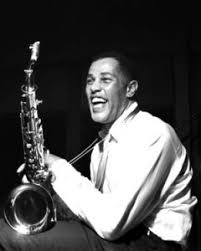
Three Wishes
Dexter Gordon was hanging out with Nica when the subject of three wishes came up and he shared with her his one wish:
- “The things I want you can’t put in your book.”
*Excerpt from Three Wishes: An Intimate Look at Jazz Greats ~ Compiled and Photographed by Pannonica de Koenigswarter
More Posts: baroness,history,instrumental,jazz,music,pannonica,saxophone,three,wishes
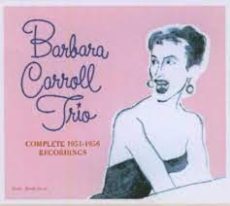
Daily Dose Of Jazz…
Joseph Shulman was born on September 12, 1923 in New York, New York. His first professional experience was with Scat Davis in 1940 followed with a stint alongside Les Brown in 1942.
Joining the military in 1943 he recorded with Django Reinhardt while a member of Glenn Miller’s wartime band. Upon his return to the States he played with Buddy Rich and Claude Thornhill, then he played with Miles Davis on the Birth of the Cool sessions.
He went on to work with Peggy Lee from 1948 to 1950 and with Lester Young in 1950. Shulman did a recording session with Billy Strayhorn and Duke Ellington that same year.
Marrying Barbara Carroll in 1954, the two toured together until his death. Bassist Joe Shulman transitioned from a heart attack on August 2, 1957 in New York City.
More Posts: bandleader,bass,history,instrumental,jazz,music
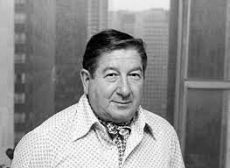
Three Wishes
While the Baroness was in conversation with Teo Macero he was asked by her what three wishes he would make if given. He told her:
- “Peace of mind.”
- “To change the status of jazz. That is, to get rid of the stigma attached to jazz music. You know. A jazz musician is regarded as some kind of freak! This is something that has bugged me for a long, long time. Like, someone will come up to me and say, “Oh, so you’re a jazz musician?” And when I say< “Yes. A jazz musician and a composer,” they will look at me altogether differently. It would be marvelous if jazz musicians could be given a status equal to that or great figures of contemporary music.”
- “To have no problems with people recording. No problems in the studio.”
*Excerpt from Three Wishes: An Intimate Look at Jazz Greats ~ Compiled and Photographed by Pannonica de Koenigswarter
More Posts: baroness,composer,history,instrumental,jazz,music,pannonica,producer,saxophone,three,wishes
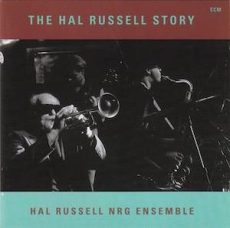
Daily Dose Of Jazz…
Hal Russell was born Harold Russell Luttenbacher on August 28, 1926 in Detroit, Michigan. Raised in Chicago, Illinois from the eighth grade, he began playing drums at age four, but majored in trumpet at college. He subsequently drummed in several big bands, including those of Woody Herman and Boyd Raeburn.
As with many young players in the mid-1940s, Russell’s life was irreversibly changed by bebop. In the 1950s he worked with Miles Davis, Billie Holiday, Sonny Rollins, John Coltrane, and Duke Ellington. During this period he succumbed to drugs and was a heroin addict for ten years. In 1959, he joined the Joe Daley Trio, whose Newport’ 1963, which was mostly studio material, was reputedly one of the earliest free jazz records.
The early 1970s saw Hal as the regular percussionist for the band at the suburban Chicago Candlelight Dinner Playhouse. He played mostly drums, but occasionally vibes and keyboards. By the end of the decade he formed the NRG Ensemble, which featured saxophonist Mars Williams, multi-instrumentalist Brian Sandstrom, and percussionist Steve Hunt, among others. During this period he started playing tenor and soprano saxophone and trumpet, in addition to drums and vibes.
Issuing his first album in 1981 for the Nessa label, in the late Eighties the group began playing frequently in Europe, and began recording for ECM with The Finnish/Swiss Tour. In addition to the NRG Ensemble, Russell always maintained several bands, the rock-oriented trio NRG 3 and The Flying Luttenbachers.
Tenor and soprano saxophonist, trumpeter, vibraphonist and drummer Hal Russell, shortly after completing the semi-autobiographical album The Hal Russell Story, transitioned from a heart attack on September 5,1992 in La Grange, Illinois.
More Posts: bandleader,drums,history,instrumental,jazz,music,saxophone,trumpet,vibraphone
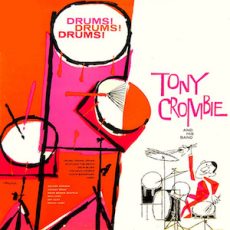
Daily Dose Of Jazz…
Tony Crombie was born Anthony John Kronenberg on August 27, 1925 in London, England’s East End Jewish community. A self-taught musician, he began playing the drums at the age of fourteen. He was one of a group of young men from the East End of London who ultimately formed the co-operative Club Eleven bringing modern jazz to Britain. He went to New York with his friend Ronnie Scott in 1947, witnessing the playing of Charlie Parker and Dizzy Gillespie, he and like-minded musicians such as Johnny Dankworth, and Scott and Denis Rose, brought be-bop to the UK. This group of musicians were the ones called upon if and when modern jazz gigs were available.
In 1948, Crombie toured Britain and Europe with Duke Ellington, who had been unable to bring his own musicians with him, except for Ray Nance and Kay Davis. Picking up a rhythm section in London, he chose Crombie on the recommendation of Lena Horne, with whom Crombie had worked when she appeared at the Palladium.
By 1956 Tony temporarily left jazz to set up a rock and roll band he called The Rockets, modeling themselves after Bill Haley’s Comets and Freddie Bell & the Bellboys. They released several singles for Decca and Columbia. He is credited with introducing rock and roll music to Iceland, performing there in 1957.
The next year the Rockets had become a jazz group with Scott and Tubby Hayes. During the following year, Crombie started Jazz Inc. with pianist Stan Tracey. During the Sixties he scored for television and film and established a residency at a hotel in Monte Carlo. He toured the UK with Conway Twitty, Freddy Cannon, Johnny Preston, and Wee Willie Harris.
In the early 1960s, Crombie’s friend, Victor Feldman, passed one of his compositions to Miles Davis, who recorded the piece on his album Seven Steps to Heaven. The song, “So Near, So Far”, has been recorded by players including Joe Henderson, who named a tribute album to Miles Davis using the title.
Over the next thirty years, Crombie worked with many American jazz musicians, including Ben Webster, Coleman Hawkins, Illinois Jacquet, Joe Pass, Mark Murphy and Eddie “Lockjaw” Davis.
After breaking his arm in a fall in the mid-1990s he stopped playing the drums, but continued composing until his death. Drummer, pianist, vibraphonist, bandleader and composer Tony Crombie, was regarded as one of the finest English jazz drummers and bandleaders, transitioned on October 18, 1999, aged 74.
More Posts: composer,drums,history,instrumental,jazz,music,piano,vibraphone



